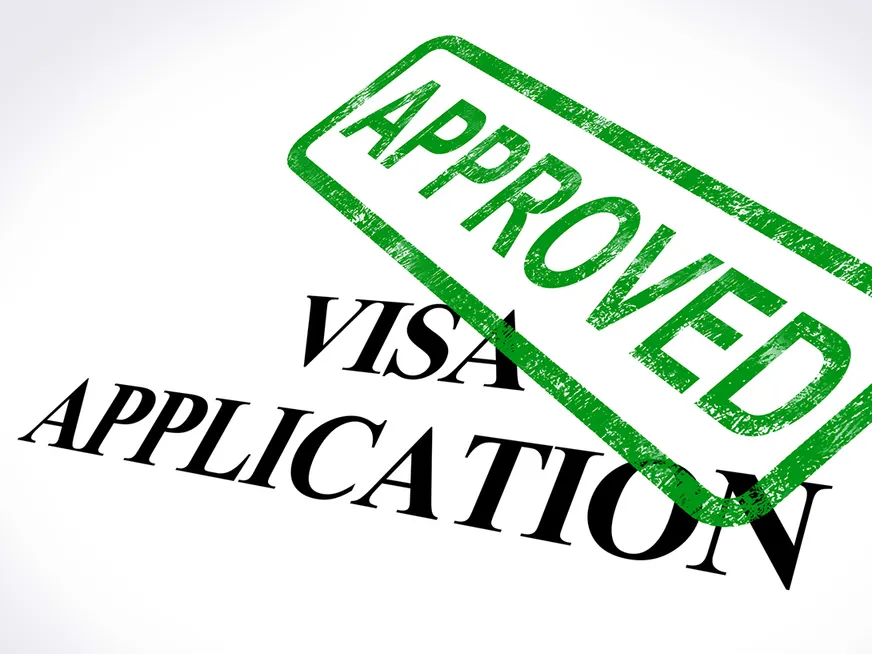When a person comes to the U.S. on a non-immigrant visa, there is a specific time limit on the validity of their visa. This limit is influenced by various factors, including the type of visa they have. Now, sometimes, circumstances arise for a person in America on a non-immigrant visa, such as business or family matters, that necessitate an extension of their stay. Individuals in such a situation may be eligible for a visa extension, which would enable them to legally extend their stay in the United States.
Extending your stay is not automatic, nor is it guaranteed, and the process involves specific forms, eligibility requirements, and strict timelines set by U.S. Citizenship and Immigration Services (USCIS). Understanding how visa extensions work, which visas are eligible, and the risks associated with overstaying can help you make informed decisions.
Visas That Cannot Be Extended
As a note, though, not all non-immigrant visas are eligible for extensions. Here is a list of the visas that are generally ineligible for extensions:
- C visas – These visas are for transit through the U.S. and are limited to very short stays, often less than 29 days.
- D visas – This is the visa category for crew members, such as airline or seafarers’ staff, who are only permitted to remain for the duration of their duty.
- K visas – Related to fiancés or dependents of fiancés, which are specifically designed to lead to permanent residency and therefore are not extendable.
- S visas – These visas are issued to informants and their immediate family members, and specific statutory rules control their status.
Also, certain immigration statuses not involving a visa are ineligible for an extension. This includes individuals admitted under the Visa Waiver Program (ESTA), who are only allowed to remain for 90 days and are not eligible for an extension. Similarly, those in visa-less transit categories cannot extend their stay.
Eligibility for a Visa Extension
Now, just because a person is in a visa category in which extensions are available doesn’t automatically mean they are eligible for an extension. There are various other requirements that an individual must meet beyond simply being in a qualifying visa category.
To qualify for an extension, an applicant must:
- Maintain lawful status: The individual must not have violated the terms of their visa, such as unauthorized employment or overstaying.
- File Form I-539: The official application is called Form I-539, Application to Extend/Change Nonimmigrant Status, which must be submitted to USCIS.
- File on time: The form should be filed at least 45 days before the expiration date shown on the Form I-94 Arrival/Departure Record, which is often more important than the visa stamp date itself.
- Hold a valid passport: The passport must remain valid for the entire duration of the requested extension period.
- Provide proof of financial means: Applicants must demonstrate that they have sufficient financial resources to support themselves during the extended stay without violating visa conditions.
- Continue original purpose: The reason for the stay must remain consistent with the original visa classification.
The Role of Form I-94 and Visa Expiration
One of the most confusing issues for travelers is the difference between the visa expiration date and the Form I-94 expiration date. The visa placed in your passport allows you to enter the United States, but the I-94 record issued at entry determines how long you can legally stay.
For example, a visitor might have a visa valid for five years but receive an I-94 entry record permitting only six months of stay. The I-94 governs your lawful status in the U.S., and any request for an extension must be made before the I-94 expires. Filing after this date may result in immediate ineligibility and unlawful presence.
Step-by-Step Process for Filing a Visa Extension
The process of applying for an extension can have its challenges and complexities. The following steps explain what an applicant must do:
- Confirm eligibility by checking the visa category against USCIS rules.
- Gather required documents, including your current passport, Form I-94, evidence of financial ability, and a detailed letter explaining the reason for the extension.
- Complete Form I-539 online or by mail.
- Pay filing fees, which currently include a $370 application fee and an $85 biometrics fee per applicant.
- Attend a biometrics appointment if USCIS requires it.
- Wait for adjudication. Processing times vary by visa type and USCIS Service Center, and can range from a few months to over a year. Applicants should keep copies of all notices, as these serve as proof of a lawful stay while the petition is pending.
What Happens if You Overstay
If a visa holder fails to apply for an extension in a timely manner or if their application is denied, the individual may accrue unlawful presence. This accrual has serious consequences:
- An overstay of more than 180 days but less than one year can result in a 3-year bar from re-entry.
- An overstay of one year or more can trigger a 10-year bar.
- Future visa applications may be denied if there is a history of overstaying.
- In some cases, individuals may face removal proceedings.
If you file a timely and properly prepared extension request before your I-94 expires, you are typically allowed to remain in the U.S. lawfully. At the same time, USCIS processes your application, even if the original I-94 has lapsed during the wait.
Alternatives to Visa Extensions
In some cases, an extension may not be the best option or may not be available. Common alternatives include:
- Change of status: For example, switching from a tourist visa (B-2) to a student visa (F-1) if you enroll in a school.
- Consular processing: Leaving the U.S. and applying for a new visa from your home country.
- Adjustment of status: If you are eligible for a green card through family, employment, or other sponsorship.
These alternatives may offer more permanent solutions, depending on your specific circumstances.
Special Considerations for Specific Visa Categories
- B-1/B-2 Visitor Visas: Often extended for up to six months, provided applicants can demonstrate financial resources and intent to return home.
- F-1 Student Visas: Typically extended through the school’s Designated School Official (DSO) rather than USCIS directly. Students must maintain full-time enrollment and meet program requirements.
- H-1B Work Visas: Extensions are employer-driven and must be filed by the sponsoring employer.
- Dependents (H-4, L-2, etc.): Family members must file their own I-539 applications, even if tied to a principal visa holder.
Appeals and Denials
If an extension request is denied, USCIS will provide a written explanation. In some cases, applicants may file a motion to reopen or reconsider if they believe the decision was made in error. Immediate departure is strongly advised to prevent unlawful presence. Consulting an immigration attorney before filing appeals is crucial to protect future immigration options.
How Immigration Lawyers Can Help
Skilled immigration lawyers can assist individuals who wish to extend their stay in the U.S. by exploring whether a visa extension is an option for them. They can also help such individuals with the process of pursuing a visa extension or other legal options that might help them achieve their immigration goals.
At Hussain & Gutierrez, we help clients evaluate their eligibility, prepare accurate applications, respond to USCIS requests, and consider alternatives if extensions are not possible. Our guidance reduces the risk of denial and ensures compliance with immigration law.
How early should I apply for a visa extension?
At least 45 days before your I-94 expiration date.
What form is required for visa extensions?
You must file Form I-539, Application to Extend/Change Nonimmigrant Status.
Can I travel outside the U.S. while my extension is pending?
Generally, no. Leaving the U.S. while the application is pending is considered an abandonment of the petition.
Can my dependents apply for an extension separately?
Yes. Each dependent must file their own I-539 unless they are included as co-applicants on a family petition.
How long can a visa be extended?
For many visitor visas, extensions are granted in increments of up to six months, although this varies by category and at the discretion of USCIS.
What happens if my visa extension is denied?
You must depart the U.S. immediately to avoid accruing unlawful presence. In limited cases, you can file a motion to reopen.
Do I need a lawyer to file for a visa extension?
While not required, immigration lawyers provide essential support in preparing strong applications and avoiding costly mistakes.
If you or your family need guidance on extending your stay in the United States, don’t navigate the complex immigration process alone. The attorneys at Hussain & Gutierrez provide trusted legal representation for visa extensions and other immigration matters.
Contact Hussain & Gutierrez today for a consultation and take the right steps to protect your future in the U.S.



